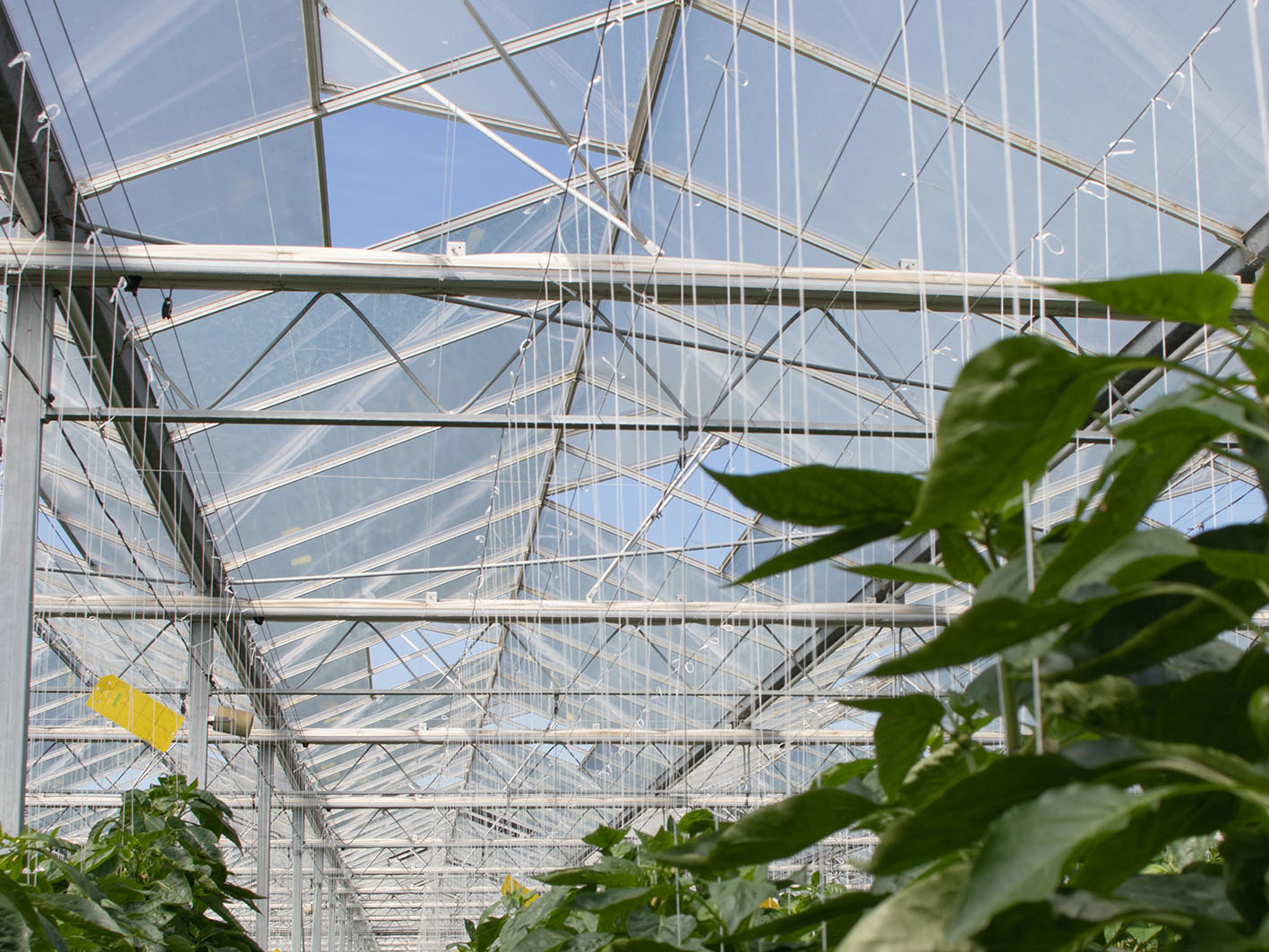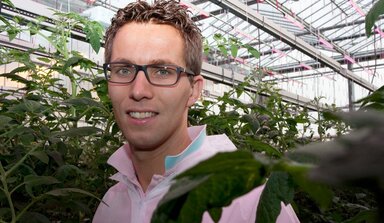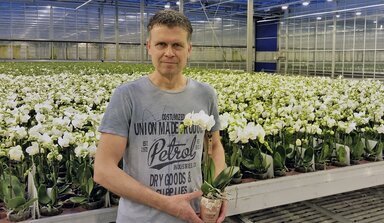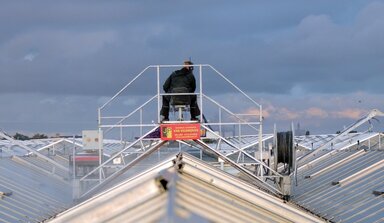Hot summer of 2018 sparks more interest in diffuse coatings
The hot summer of 2018 was a learning curve for many growers. In extreme conditions such as those, the crop needs much more protection. With this in mind, many growers are taking a closer look at ReduFuse and ReduFuse IR.
Almost any crop can benefit from diffuse light. It penetrates deeper into the canopy, enabling more leaves to actively photosynthesize. The top of the plant gets slightly less radiation – and therefore suffers less stress – and the middle gets more. And that results in better quality and potentially higher yields.
The long, hot summer of 2018 taught us how important it can be to protect crops against stress. Many growers suffered quality problems, sparking a significant increase in interest in diffuse light.
Tomato
Tall-growing crops benefit greatly from deeper light penetration. In trials with diffuse light, tomato yields were up by 8-12 percent. And yet in north-western Europe, diffuse coatings have tended to be used mainly for finer tomato varieties grown under supplementary lighting. But last summer saw a big change: many growers growing coarser tomato varieties are now telling us they plan to use ReduFuse to protect their crops in the height of summer. To achieve this, it is important not to apply the coating too early in the spring.
Tomato growers in regions with a continental climate have been using ReduFuse or ReduFuse IR in midsummer for some time, sometimes supplemented with spray-on shading compound.
All growers want to get as much benefit as possible out of the available light. The better light distribution obtained under a diffuse coating, both horizontally and vertically, helps maximize conversion of light into yields, with fewer quality problems.
Sweet pepper
Sweet pepper is very sensitive to alternating sun and shade. The crop is difficult enough to keep in balance anyway, and changeable weather disrupts it further, increasing the risk of blossom-end rot. Continuously hot conditions undoubtedly exacerbate this problem, as became widely apparent in last year’s hot, dry summer. ReduFuse tempers the climate in the greenhouse, causing the plant temperature to drop a few degrees and making it much easier to control the balance. Growers say they see ReduFuse as an investment in certainty.

Cucumber
This plant is known to be hugely efficient in converting light into yields. But despite very good results in trials with diffuse light, high-wire cucumber growers saw no added value in applying a diffuse coating until recently. This all changed last summer, when many growers found they were unable to control their greenhouse climate with fixed shading cloth. Now they too are taking a much closer interest in ReduFuse as an insurance policy.
Chrysanthemum
On the cut flower front, chrysanthemum is known to be a light-loving plant. But high solar radiation can cause quality problems, so better light distribution always benefits the crop. For white varieties, ReduFuse is the ideal coating: the crop experiences less stress, leading to sturdier stems and fewer yellow leaves lower down in the crop. Pink varieties color less well if solar radiation is too high. This is mainly due to the rise in the plant temperature, causing it to produce lower levels of anthocyanins. ReduFuse IR is a good solution for this: it keeps the plant temperature a few degrees lower, at just the right level.
Lisianthus
Lisianthus is a crop that is gaining in popularity, and insights into the best cultivation conditions are still growing. As far as light requirements are concerned, the plant is similar to chrysanthemum. ReduFuse is an effective tool for stabilizing and evening out the greenhouse climate.
Gerbera
Gerbera has a dense package of leaves that lie on top of one another. In direct light, the top leaves have to process all the radiation. Diffuse light is therefore a major boost for this crop, enabling far more leaves to photosynthesize effectively. ReduFuse is a good investment. Whether it is enough on its own will depend on local climatic conditions. We are seeing an increase in the use of ReduFuse IR to gain even more control over the plant temperature.


